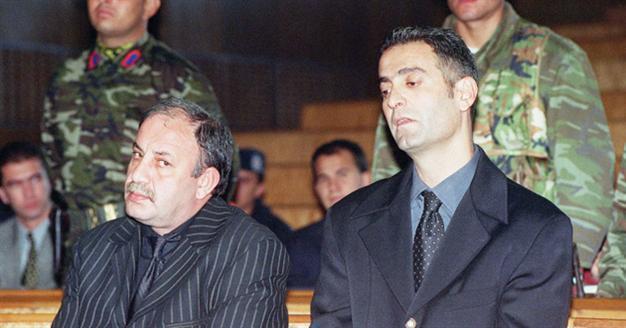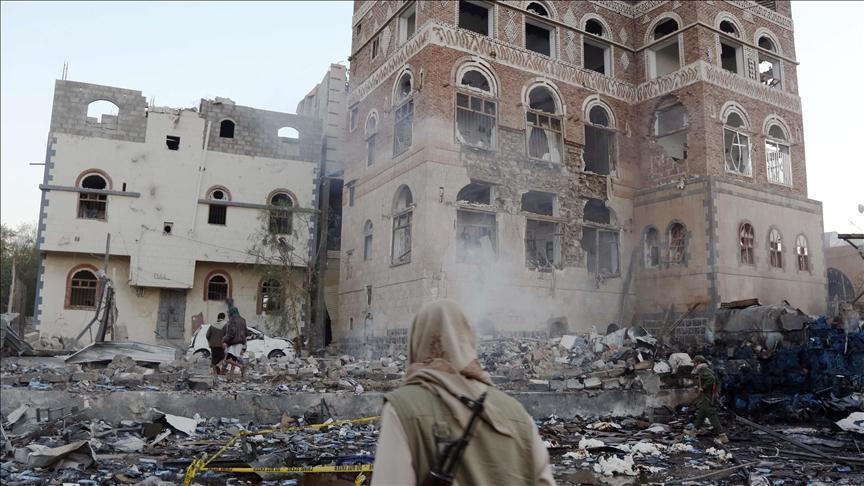‘Bahçelievler Massacre’ convicts may be released
ISTANBUL/ ANKARA

Court decides to stop the execution of punishment for Bünyamin Adanalı (L) and Ünal Osmanağaoğlu convicted in connection with the ‘Bahçelievler Massacre.’
Two convicts who killed seven student members of the now-defunct Labor Party of Turkey (TIP) on Oct. 9, 1978 may be discharged by court decision, as the first prisoners to take advantage of the provisions of the “third judiciary package.”Ankara’s Third Court for Serious Crimes has decided to stop the execution of punishment for two men convicted in connection with the “Bahçelievler Massacre,” Bünyamin Adanalı and Ünal Osmanağaoğlu , in context with the new legal regulations known as the “Third Judiciary Package.”
Yalçın Kasaroğlu and Mustafa Ekinci, lawyers for Adanalı and Osmanağaoğlu, said their clients had been in prison for 14 years and that they want to use the new article in their favor.
Prosecutor Halil Maçkaya requested an end for the execution of punishment, saying the continuation of the execution of punishment might cause unjust treatment for the suspects. The court has decided to stop the execution of punishment for the convicted suspects.
The suspects cannot take advantage of the related article, because in 2002 they benefitted from another article in their favor, which commuted their sentences from the death penalty to lifelong imprisonment, said Ersen Sansal, a lawyer for the co-plaintiff.
“They killed seven people, and they stayed in prison for two years for each of them,” Sansal said as he exited the trial.
The Bahçelievler incident (also known as the Bahçelievler Massacre) is the name given to the events of Oct. 9, 1978 in Bahçelievler, Ankara, Turkey, when seven university students, members of the TIP, were assassinated by extreme nationalists, including Grey Wolves’ leader Abdullah Çatlı and Haluk Kırcı.
Disappointment over the verdict
Republican People’s Party (CHP) deputy chair Sezgin Tanrıkulu yesterday expressed disappointment over the possible release of the convicted murderers, speaking to the Hürriyet Daily News.
“Securing the release of people convicted for killings that hurt the public conscience is unacceptable and disappointing. Parliament shouldn’t have adopted the bill while the memory of these killings is still alive,” Tanrıkulu said, adding that that the ruling Justice and Development Party (AKP) stood idly by while judicial wrongdoing took place, particularly in the cases of the currently jailed parliamentary deputies, while adopting bills to “rescue those who are responsible for killings.”
Hasip Kaplan, deputy parliamentary group chair of the Peace and Democracy Party (BDP), also said the releases were “unacceptable.” Kaplan recalled previous releases in contentious cases such as Hizbullah and the Madımak massacre case.
“Those who have been convicted of murders are being released, but thousands of people are behind bars because they expressed their views. There has been an explicit double-standard for so long; this is unacceptable. They [the AKP] have pricked the public conscience,” Kaplan told the Daily News.
The release of the far-right militants became possible through a last-minute amendment to the third judicial reform package during the debates at Parliament’s Justice Commission on June 2. According to the proposal submitted by the AKP and the Nationalist Movement Party (MHP), prison terms for those who committed several murders before the 1980 coup were abated.
“Murders that were tried as organized crime were punished with a single jail term; however, in some political prosecutions each individual crime [murder] was sentenced separately. This amendment will correct this inequality,” Adem Sözüer, a law professor and advisor to the panel said when the article was being debated.
The proposal was approved with AKP and MHP votes despite the CHP’s objections.
“There was an injustice in dispensing justice. This injustice has been corrected,” the MHP’s Oktay Öztürk said during the debates, while the AKP’s Harun Tüfekçi defended the bill, saying, “A need has arisen and a regulation was made accordingly.”
















